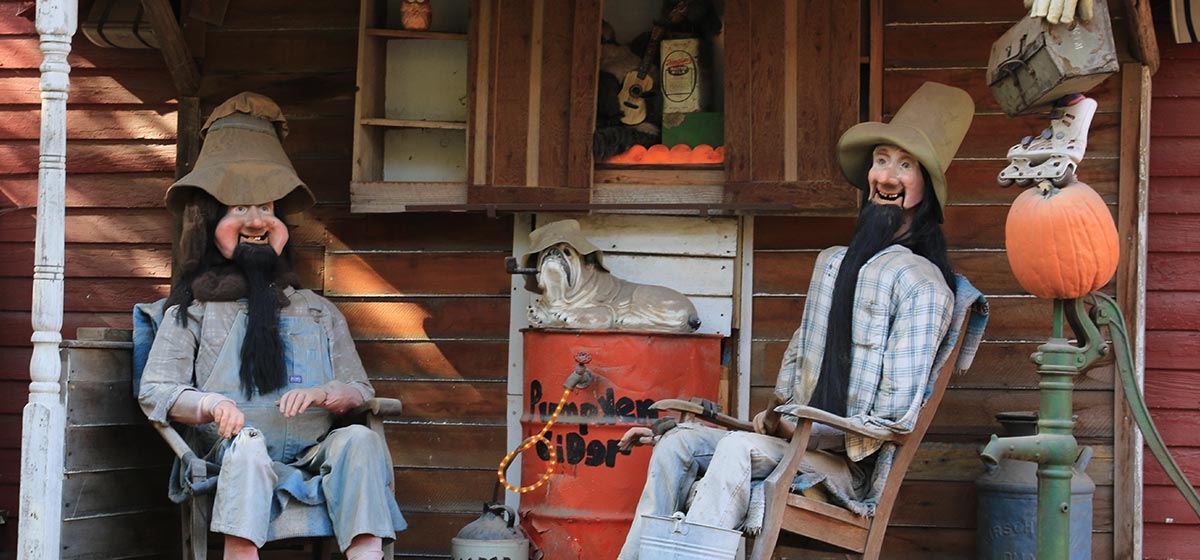The Inscrutable Foibles of Hillbilly Talk

Although the parallels between my life and that of J.D. Vance, author of “Hillbilly Elegy,” seem flat-out astonishing, it’s actually the differences that are more interesting.
Vance and I both started out with grandparents who migrated from southeastern Kentucky to the Dayton, Ohio area, and we ultimately ended up in pretty much the same place: Yale Law School for him, Harvard Law for me. But our experiences of that journey were very, very different.
As I’ve mentioned, Vance’s Papaw and Mamaw left Kentucky not because they wanted to but, at least in part, because they had to. My grandparents left Kentucky solely because they were looking for a better life. Vance’s grandparents took their hillbilly culture with them intact and, when they discovered that it didn’t work in middle-class Ohio, they proudly struck with what they knew.
My grandparents, by contrast, were determined to be successful in Ohio, almost no matter what it took. They weren’t prepared to change their fundamental characters—which were, in any event, wholly admirable (as was true of Vance’s grandparents)—but everything else was fair game.
Still, even with all the steadfastness in the world, making a successful leap from Barbourville, Kentucky to Springfield, Ohio wasn’t easy. While Vance’s grandparents and mine looked, from a distance, like any other white, middle-class couple in Ohio, up close the differences were staggering—and very difficult to eradicate.
Consider the problem of the spoken language. When I was a kid—really, right up to my mid-teens—I spent a lot of time with my grandparents. My mother had me when she was 19, and three more kids came along very quickly—four of us in five and a half years. Every morning when my mother got out of bed the first thing on her mind was how to get rid of her oldest Energizer Bunny so that she wouldn’t go stark raving mad.
Soon enough, here would come Granddad in his pickup truck and off we would go.
Living with Granddad and Grandma was like learning a different language. Although they had been in Ohio for 20 years by the time I came along, they still spoke with a Kentucky twang that would curl your toes. And they used, in almost every sentence, words and phrases that hadn’t been heard in polite, middle class society for a century or more.
If I asked Grandma, “Where’s Granddad?” she’d jerk her head toward the back yard and say, “’E’s out yonder.” Out yonder? Who talks like that?
To my grandparents, Thanksgiving wasn’t a holiday that happened very late in the year. It was a holiday that happened “way down in the fall.”
In the early 1950s the Winston cigarette brand launched an advertising slogan that went, “Winston taste’s good—like a cigarette should.” My grandparents version was, “Winston tastes good—like a cigarette had oughta.”
Around the house Grandma and Granddad never shut up. They were both strong personalities and, while they were devoted to each other, they bickered constantly, often from several rooms apart. But once out in public they went strangely silent. The reason for this, of course, was that as soon as they opened their mouths they identified themselves as Kentucky hillbillies.
Most Americans have never heard anyone speaking the true, 100-octane Appalachian dialect. The versions of it we hear in the movies (Deliverance) or on television (Beverly Hillbillies) have been dumbed way down so we can understand it. But the real McCoy is a whole other enchilada. Here’s an illustration.
When I was about 15, I attended another of our endless series of family reunions in Barbourville, Kentucky with my grandparents. Also attending was a girl named Emmalou, who turned out to be my third cousin. Far more important, Emmalou was drop-dead gorgeous. (She was a dead ringer for Annette Funicello, every boy’s favorite Mouseketeer.)
Emmalou had an older sister, Bettylou, who’d been a finalist in the Miss Kentucky pageant a few years earlier. That is, Bettylou had been a finalist until they found out she wasn’t a “miss.” At the age of 18, Bettylou had been married and divorced—twice.
The early-marrying proclivities of Emmalou’s family caused my grandmother to keep a very sharp eye on me, much to my annoyance. Fortunately for me, though, the grandmother hasn’t been born who could keep a 15-year-old boy away from a girl like Emmalou.
In no time at all I’d made my escape and had strolled up to where Emmalou was standing talking with her friends. When she heard me coming, Emmalou turned, smiled at me, and said…
Well, what the hell did she say? Since I was staring at her blankly, Emmalou repeated herself, but I was none the wiser. Eventually, concluding that she was speaking to a deaf-mute, Emmalou rolled her eyes and walked off with her friends, leaving me in the lurch.
I found out later—from my cousin, Alvin—that Emmalou had merely asked if I was going to go swimming with her and her friends. (And since she meant skinny-dipping, my response would have been, “Is the Pope Catholic?”)
Alas, the outlandish noises that came out of Emmalou’s mouth were completely unintelligible, and can only be (but poorly) reproduced like this:
Isyallgwinswmminwi’tweens?
It was one of the saddest days of my young life, separated from that spectacular girl by, as they say, a common language.
Next week we’ll take a look at another hurdle standing between recent immigrants from southeastern Kentucky and the Promised Land of middle-class Ohio.
Next up: On Hillbilly Elegy, Part VI





